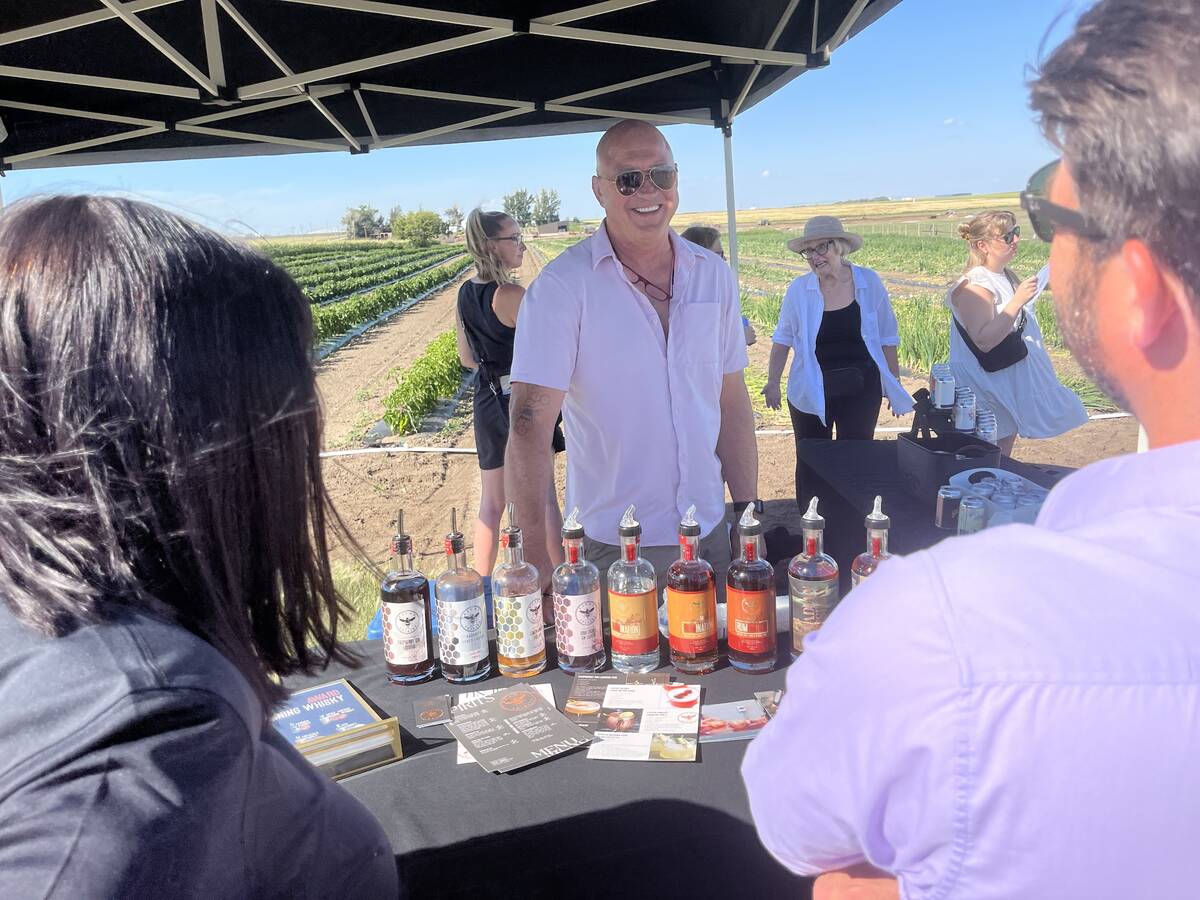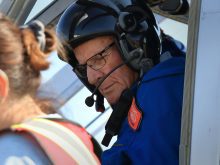Leaders of Canada’s rural governments, supported by their urban colleagues, are calling on the new Conservative government to create a “rural champion” in the new national cabinet.
Members of the task force on rural advocacy within the Federation of Canadian Municipalities last week said it should be star rookie Quebec Conservative Lawrence Cannon, minister of transport, infrastructure and communities.
“We need a champion in cabinet,” Bromont, Que., mayor Pauline Quinlan told a news conference Feb. 28. “We want to have someone who can co-ordinate issues across cabinet and government. We are asking that the role be given to Lawrence Cannon.”
Read Also

From farmer to award-winning distiller
Pivot Spirits showcases transition from farmer to distiller with provincial award-winning results in Alberta for Lars Hirch
Cannon is a former Quebec Liberal cabinet minister elected as a Conservative Jan. 23 in a rural riding in west Quebec north of Ottawa. He is a former city councillor and transportation advocate.
“He understands the problems we face in rural Canada,” Quinlan said.
Don Johnson of Taber, Alta., president of the Alberta Association of Municipal Districts and Counties, said rural issues need a higher national profile.
“I think it is a major challenge to educate all Canadians to understand the issues rural Canada faces and the importance of rural Canada to the nation,” he said.
The municipalities federation call for a rural champion follows more than a decade of Liberal governments with dedicated rural advocates in junior ministerial positions and a promise from former rural secretary and then-agriculture minister Andy Mitchell that all government policies would be assessed through a rural lens.
The rural political leaders on the conference call from Bromont said the view through the rural lens appeared to miss key points:
- Hundreds of millions of dollars should be invested in rural infrastructure including roads and water systems.
- Rural economic development efforts are hampered by a lack of high-speed internet service in many communities.
- Rural communities lack professionals willing to settle or stay in the area.
- Rural environmental efforts can be part of meeting Canadian international climate change commitments.
These are the priorities they want a rural minister to present to cabinet.
Johnson said previous government efforts to focus on rural issues often involved spending more money.
“In fact, the emphasis should be on the tools we need for development and the broadband (high speed internet access) is a key,” he said.
In a later interview, the Alberta rural leader also suggested a more concerted effort by the federal government to attract educated and skilled immigrants to move to rural Canada.
He said one idea is to require that professionals whose credentials are recognized in Canada should spend their first few years in rural areas where their skills are in demand.
“If they spend a few years in our communities, we’re convinced they’ll want to stay.”
Sharon Hartwell, mayor of Telkwa, B.C., said the need for investment in rural infrastructure is a huge issue.
She said a federal investment of $1 billion through the federal-provincial-local infrastructure program, with a more flexible arrangement for local contributions, would be a major boost for rural communities that face deteriorating roads, inadequate water systems and other infrastructure needs.
As it stands, agriculture minister Chuck Strahl is designated the minister responsible for rural issues in the streamlined Conservative cabinet.
At least one politician once responsible for rural issues agrees with the federation recommendation that the responsibility be moved beyond agriculture.
Liberal Wayne Easter, a parliamentary secretary responsible for rural issues in the last Liberal government, said in a March 1 interview rural issues are broader than agriculture.
The Prince Edward Island farmer said it is important governments realize the scope and importance of rural Canada as a wealth creator in natural resources that range from agriculture and mining to forestry and fishery.
“I think it is a good idea to have a minister that would be responsible for rural as a whole and try to tie it all together because one thing I did see in my responsibilities is that there is, to a great extent, a rural-urban divide and there is a tremendous misunderstanding of rural and what it does,” he said.
“Wealth comes from the countryside and they accumulate it in the cities. So we need someone from the government arguing from a general point of view how valuable rural is and not leaving it with the minister of agriculture alone because he has enough on his plate.”














